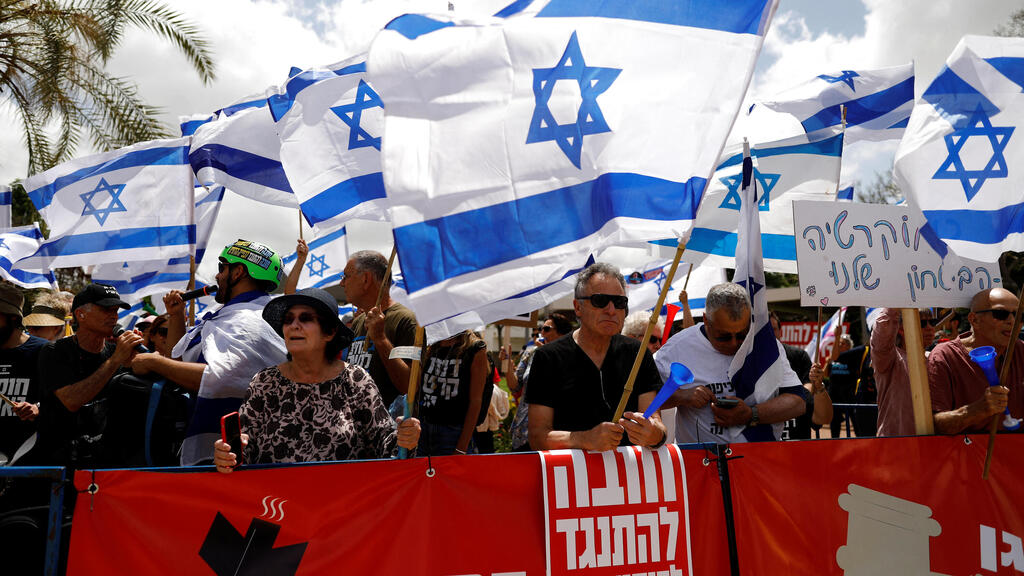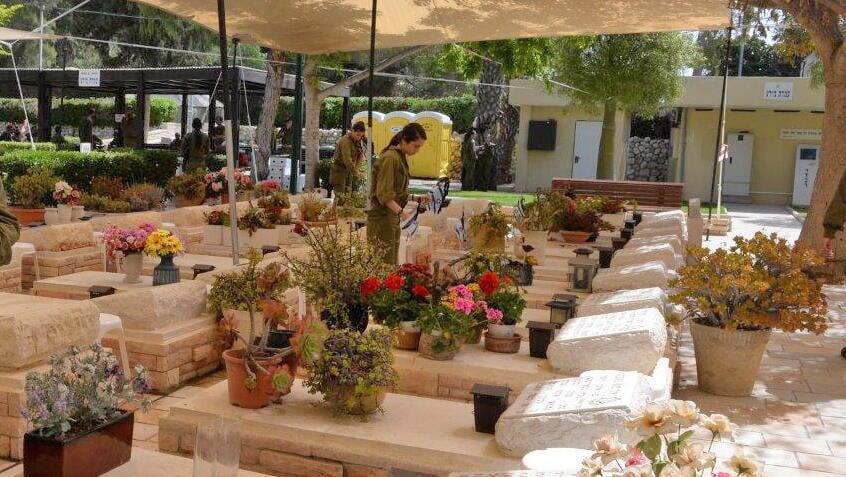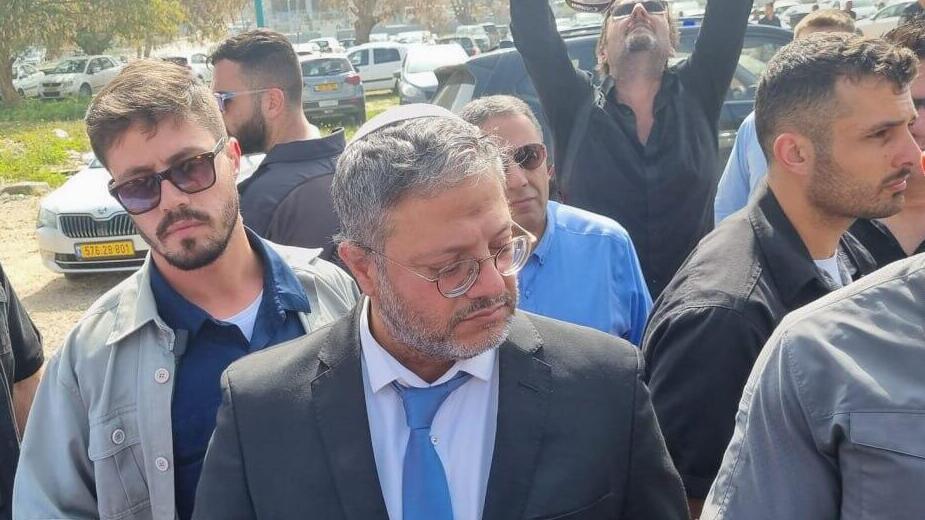Getting your Trinity Audio player ready...
As Israel nears Memorial Day for fallen soldiers and victims of terror the public dispute over the coalition's judicial overhaul threatens to interfere with the sanctity of the occasion.
Other stories:
As the Israeli public is split in its support or opposition to the legislative push, so are the families who have lost sons, daughters, fathers and siblings in Israel's short history and while some want their family members honored by elected officials, others see their presence as an attempt to hide the true magnitude of the public opposition.
Prime Minister Benjamin Netanyahu, himself having lost his brother to battle, in the heroic release of hostages from Uganda in 1976, on Thursday called for unity and for political disputes to be kept outside when Israelis unite with the fallen, but after the Defense Ministry published the list of coalition members who will attend ceremonies in military cemeteries across the country, some of the bereaved families said they would protest.
Earlier, Defense Minister Yoav Gallant said ministers and members of Knesset, must attend Memorial Day ceremonies as representatives of the elected government but hoped that they would refrain from political comments.
In their criticism, families said they object to politicians, especially those who have, themselves, not served in the military, appearing on their special day. In Be'er Sheva where National Security Minister Itamar Ben-Gvir is due to appear, protests were already announced. It was not clear whether the far-right extremist who had been a member of the racist and outlawed Kach Party will choose to speak as the minister refused to reveal his plans.
Uri Tuval, whose father was killed in the 1973 Yom Kippur war said he never cared what political stripes would describe a speaker in previous years, but is shocked by the prospect of Ben-Gvir's attendance. "A person who did not enlist, who preferred to be a racist and was convicted of crimes, cannot represent the country to me. It is a spit in my face," he said.
Others said that while the minister gives his speech, they would be singing a song of comradery and hope.
" We cannot shout and we cannot be silenced," one said. "So we will sing and others are invited to join in."
Security arrangements have been increased for the arrival of Ben-Gvir, Justice Minister Yariv Levin who will attend a memorial ceremony in Ofakim in the South and Finance Minister Bezalel Smotrich. Protesters have been hounding ministers and members of the coalition in many of their public appearances since the legislation began.
3 View gallery


Protesters in Sderot while the government hold its weekly cabinet meeting there
(Photo: Reuters)
Special security will also be on hand to remove protesters from cemeteries should they speak out and disrupt events, even if they are from grieving families.
Transportation minister Miri Regev said the right to protest is not the right to anarchy. She and other ministers have called protesters who have taken to the streets in opposition to the government's judicial push, anarchists and traitors. Among them, she included volunteers in elite reserve units of the IDF who have said they would not serve a non-democratic government.
One mother whose son was killed in the Second Lebanon War said she did not think ministers should attend the Memorial Day ceremonies because of the public dispute. "We don't need politicians," she said. "Honorable members of the families can speak and that would be enough for me."



